Opinion
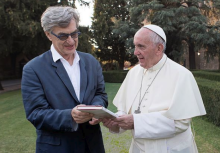
"Pope Francis has an enormous capacity to communicate. His words are simple, but clear, and from the heart. He has a great presence that comes from his honesty, his humility, his sense of humor, and his courage."
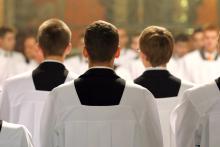
In my experience, seminaries have perpetuated the notion that Jesus can be molded into the salvific order of the day. While the debate regarding Jesus, his nature, his relationship to the Creator have been the source of debate for millennia, we neglect to account for the debate’s effect on believers. For some, Jesus is an activist intentionally resisting empire. To others, he is ethereal and the God of a few. Others see Christ as the leader of a militant, anti-establishment sect. And to a select few, Jesus is simply “their homeboy”.

The United States did compete in a World Cup in Russia this year: the Street Child World Cup, a tournament and conference highlighting homeless youth's ideas for a better future.
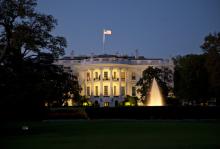
The Holy Spirit is at work even in the darkness of this political moment. We feel it calling us to reclaim Jesus from those who have appropriated, co-opted, and hijacked his name for worldly power. Will you join us and show the world that the followers of Jesus refuse to be complicit and refuse to be complicit?

If we commit ourselves, as Christians and communities of faith, to see one another in our full complex experiences of life, if we name and honor and celebrate and walk with one another in each of life’s many layers day after day and week after week, then Mother’s Day will still come each year, as it always does. And it will no doubt, still carry both joy and pain for people. But perhaps it will not be so much an overwhelming challenge to us, to cram a universe worth of feeling and experience that we otherwise neglect into a single day.
1. Black Activist Jailed for His Facebook Posts Speaks Out About FBI Surveillance
Rakem Balogun is believed to be the first person targeted and prosecuted under a secretive U.S. surveillance effort to track so-called “black identity extremists.”
2. You’re Not That Special, and Other Lessons from Kate Bowler
“It makes sense that Kate Bowler, whose career began with a motorcycle-driving pastor of a Mennonite megachurch, would also be the person you’d want to hear from about life with incurable Stage 4 cancer. When life hands you the incomprehensible, sometimes all you can do is pay attention.”
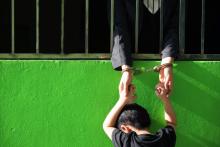
Even though Congress has not voted on the Dignity for Incarcerated Women Act, states have begun using it as a model for state-level legislation. We must keep the momentum rolling. This Mother’s Day, give the gift of civic engagement.

"I wanted to make a book that (says), this is how it feels, here is how it’s dangerous for me to talk about race and be a black woman in an organization that thinks it’s made it, but it still has work to do. I hope by naming those things and making those things real, it would open up the eyes of white folks and (give) people of color an opportunity to say, 'This is real.'"

This Pentecost, take your faith to the streets of Washington or to the streets of social media. Here are ways you can join us, and say publicly that you are reclaiming Jesus from those who would co-opt his name.
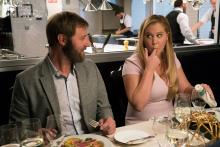
I Feel Pretty, the third cinematic project featuring Comedy Central star Amy Schumer, presents a philosophy about the power of confidence that is both deeply concerning and unoriginal: Confidence is something to be bought.
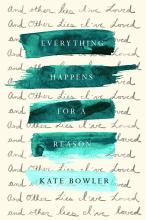
"I think honestly, the hardest one is that I thought I was special. I thought there was something special about me that would prevent the worst possible thing from happening. I don't know where that came from, if it's just the hubris of living and that we can't imagine ourselves dying at all. But I think I really thought I was special."
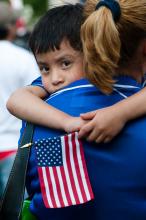
This Mother’s Day, I have a word for members of Congress about our immigration system: Don’t leave moms behind. Don’t keep families apart. Remember how important family is to you.

Among people’s initial responses was the idea that in this song, Donald Glover is paying homage to the “Charleston Nine,” the black churchgoers murdered by extreme racist Dylann Roof in the historic Mother Emanuel A.M.E. Church in Charleston, S.C., in 2015. While this disturbing imagery reminds us of this atrocity, while watching this scene, I also saw this as an indictment of the American church.
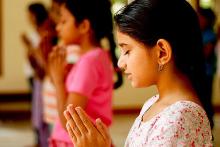
As far back as the early 19th century, Catholic students and other religious groups were sometimes whipped, beaten, and worse, for not participating in prayer and Bible reading in the common schools, a predecessor to the public schools.

Tully is a real, funny, unflinching look at the demands of parenthood. It shows the pressures of outside judgment, and constant frustration, as well as the small moments of beauty and victory when everything works, and we’re buoyed by the kindness and care of others. It also shows what happens in the absence of that care, or our unwillingness to recognize how much we need it.
9. These UNESCO-Protected Mansions in Istanbul Were Rotting Away. Then Syrians Refugees Moved In.
“Few of the residents in the area know that the wooden houses they live in are of immense historical importance. They are some of the last surviving Ottoman-era mansions in Istanbul, where vast construction projects and a relentless drive for modernization have transformed the city’s landscape in the last century.”
10. 10 Pieces You Need to Read About Sexual Assault and the Church
Our prayer is this: May our reading and writing lead to preaching and legislating, may our preaching and legislating heal trauma and end sexual violence. Amen.

But the answer isn't an antiquated, unfair-to-women, patriarchal dividing of the sexes. It's not in a rule has nothing to do with Jesus and everything to do with male superiority complex, a devaluing of the human body, patriarchy, and oppression of women.
The answer is to lift up the men who get it, the men who love and respect women.
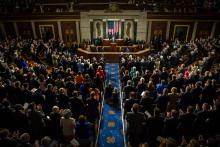
The saga of politicians firing the U.S. House Chaplain is a reminder of how we prefer God in small doses. We try to confine the transformative spirit of God to a few carefully chosen areas of our lives.
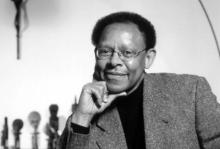
If racism was and is America’s original sin, and repentance is the only sufficient response to sin, James Cone was the most important theologian of his generation. To white Americans, he said, “Repentance means dying to whiteness.”
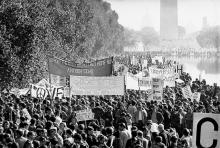
Times reporter Edward B. Fiske observed how conservative evangelical Protestants supported the war. Many, like the theologian and editor of Christianity Today, Carl F. Henry, believed it to be morally defensible. Fiske wrote that “the majority of laymen and clergy in this country” were more in agreement with Carl Henry than with William Sloane Coffin.